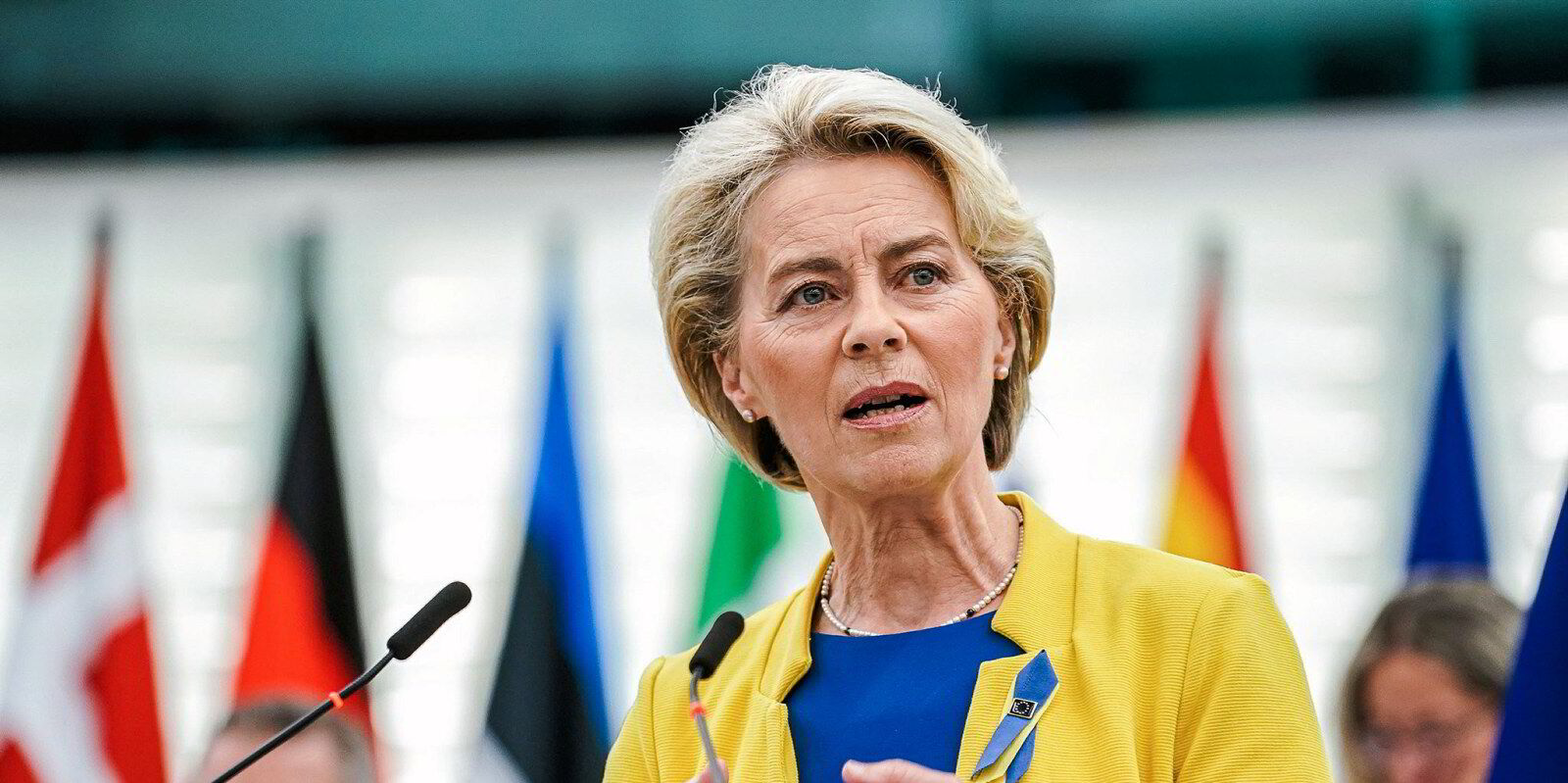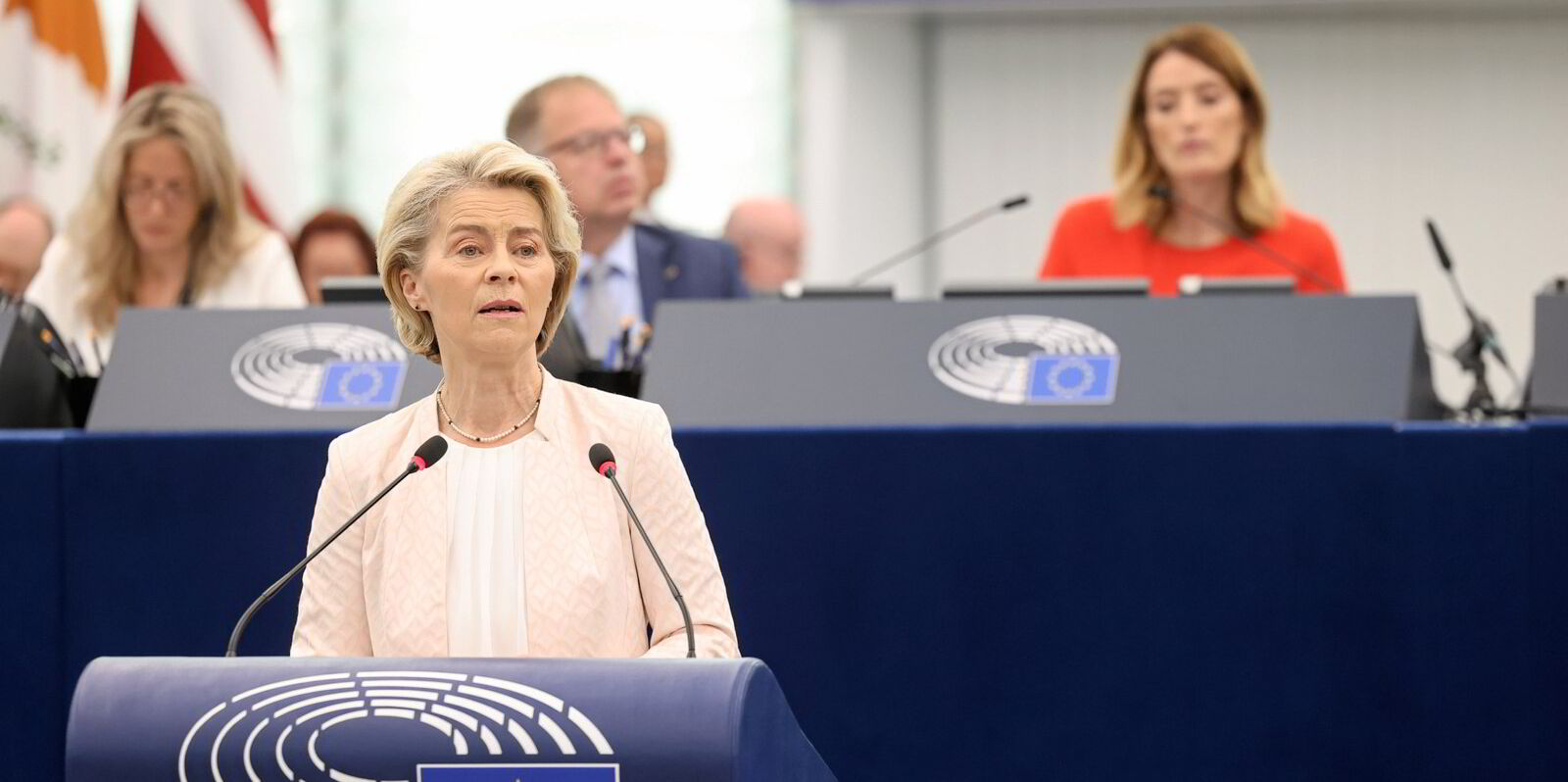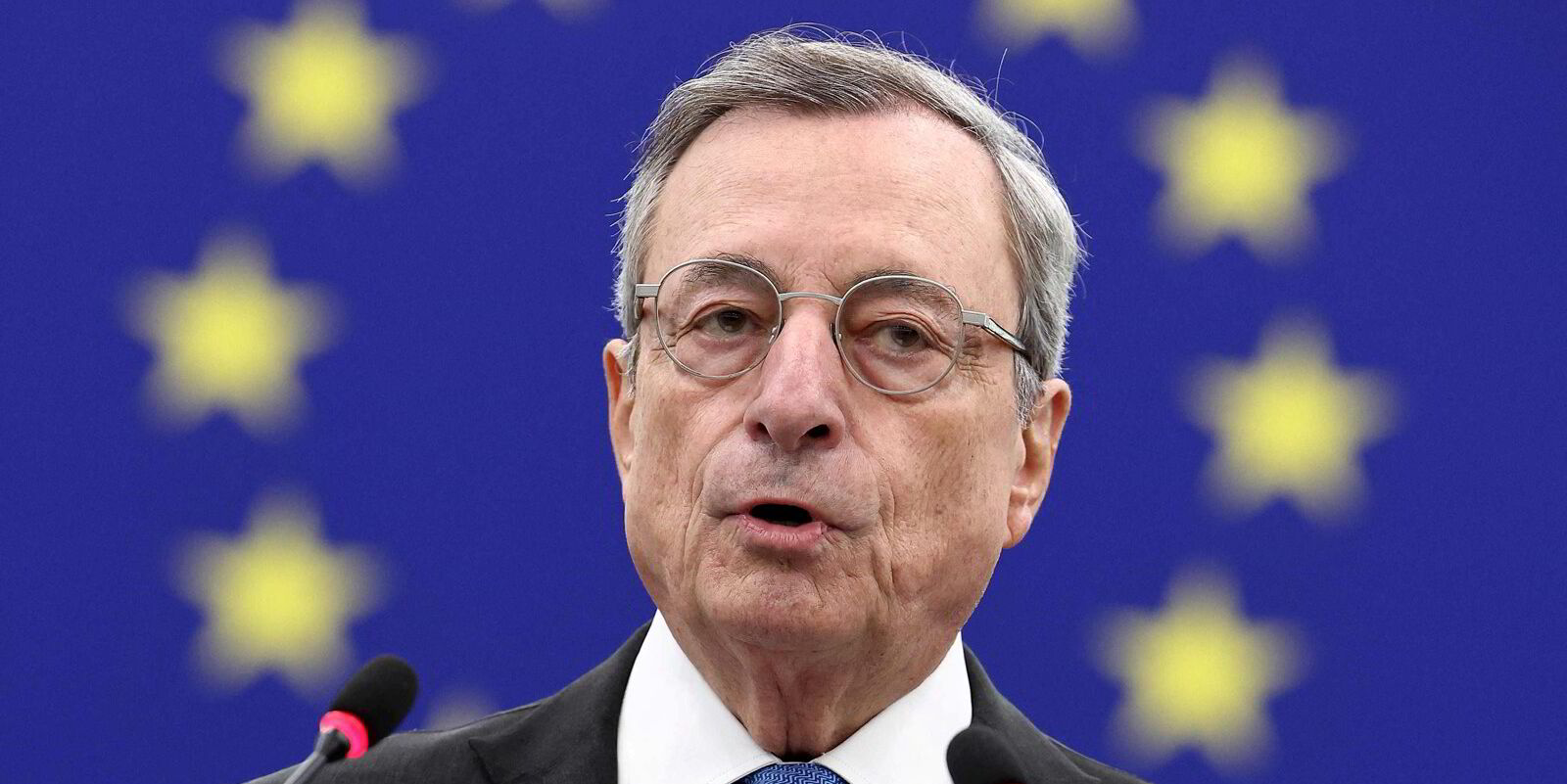Europe’s shipowner lobby and an influential Brussels-based environmental group joined forces to push Europe Union decision makers to not forget about shipping in the bloc’s next big, green industry initiative.
“We, representatives of the shipping industry and environmental groups … stand ready to play our part in the transition to sustainable and safe maritime transportation,” the European Community Shipowners’ Associations and Transport & Environment said in a common statement on Thursday.
The joint initiative comes as confirmation hearings start next week for the new European Commission, whose president Ursula von der Leyen has promised to adopt a Clean Industrial Deal in the first 100 days of her next five-year term set to begin around December.
The upcoming plan must make sure that “at least 40% of clean fuels and clean and innovative technologies needed to achieve EU’s climate targets for shipping are manufactured in Europe,” ECSA and T&E said in their statement.
According to the document, fuel producers should also be subject to “dedicated supply requirements” for shipping in European ports.
The plan should furthermore include provisions to earmark revenue from the EU’s Emissions Trading System for maritime decarbonisation investments, ECSA and T&E said.
There is a regulatory gap to make all these goals happen and EU policymakers must fill it, according to T&E’s shipping director Faig Abbasov.
ECSA secretary general Sotiris Raptis said that “all hands on deck” are needed “to maintain the industry’s competitiveness and to achieve net zero emissions by 2050”.

ECSA’s and T&E’s hope that shipping will find special consideration in the Clean Industrial Deal is supported by the Draghi report — a 69-page document designed to serve as a blueprint for European Commission policy that was published earlier this year by Mario Draghi, a former Italian prime minister and head of the European Central Bank.
Exploring the future of European competitiveness in general, Draghi made special mention of the maritime industry, which he said will require around €40bn ($44.5bn) each year from 2031 to 2050 to help the EU achieve its elevated environmental goals.
“The Draghi Report has recognised the global leadership of European shipping and the need to remain internationally competitive,” Raptis said on Thursday.
“We urge policymakers to ensure and further leverage this competitive advantage by investing in clean fuels and innovative technologies for the energy transition.”





